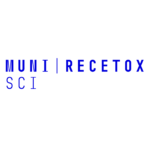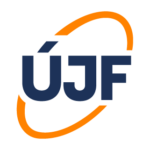Overview
Doctoral study program: Life Sciences
Form of study: doctoral full-time
Supervisor: Mgr. Michal Šmída, Ph.D.
Topic title: The role of mitochondria exchange through tunnelling nanotubes in the regulation of CAR-T cell activity
Annotation:
CAR-T cells are genetically engineered T lymphocytes expressing chimeric antigen receptor (CAR), which reprograms them to specifically kill tumour cells. Despite their clear success in the therapy of some haematological malignancies, CAR-T cell therapy largely fails in other leukaemias like CLL or AML. One of the reasons is the dysfunction of patient´s T cells due to their functional exhaustion. Recently, it was shown that tumour cells can form thin membranous protrusions with their surrounding cells, among others with T cells. These protrusions are called tunnelling nanotubes (TNTs) and it was proposed that tumour cells are able to use these TNTs to steal mitochondria from their partners, incl. T cells, thereby weakening T cells and causing their dysfunction. We have discovered that these TNTs are indeed formed also between CLL cells and T cells and this results in the transport of mitochondria from T cells towards leukemic cells.
This PhD project will analyse the molecular mechanisms responsible for TNT formation and mitochondrial loss. We will perform genome-wide CRISPR/Cas9 screen and RNA-sequencing to identify factors required for mitochondrial exchange. Importantly, we will investigate approaches how to revert this phenomenon and how to enhance mitochondrial content within T cells in order to generate more potent CAR-T cells with boosted killing activity.
Recommended literature:
- Sadelain, M., et al. (2013). « The basic principles of chimeric antigen receptor design. » Cancer Discov 3(4): 388-398.
- Riches, J. C., et al. (2013). « T cells from CLL patients exhibit features of T-cell exhaustion but retain capacity for cytokine production. » Blood 121(9): 1612-1621
- Saha, T., et al. (2022). « Intercellular nanotubes mediate mitochondrial trafficking between cancer and immune cells. » Nat Nanotechnol 17(1): 98-106.
- Borcherding, N. and J. R. Brestoff (2023). « The power and potential of mitochondria transfer. » Nature 623(7986): 283-291.
- Baldwin, J. G., et al. (2024). « Intercellular nanotube-mediated mitochondrial transfer enhances T cell metabolic fitness and antitumor efficacy. » Cell 187(23): 6614-6630 e6621
Research area: Cancer biology, Functional genomics, Immunotherapy
Keywords: CAR-T cells, tunnelling nanotubes, mitochondria exchange, leukaemia, cellular immunotherapy
Funding of the PhD candidate:
The funding will be provided from the institutional support of the PI plus potential research grant in future.
In the academic year 2026/27 the net income of the CEITEC PhD School student is expected to be at least CZK 29,400 (approx. EUR 1215), consisting of Doctoral scholarship + CEITEC PhD school scholarship + part-time salary (0,5 FTE).
Requirements for candidate:
- Master degree in molecular biology, cell biology, biochemistry or related studies
- Practical experience with mammalian cell culture
- Knowledge of tumour cell biology is of advantage
- High motivation and enthusiasm to perform top-notch research
Information about the supervisor:
At the moment supervising 4 PhD students, 1 PhD student is defending in December. Two PhD students already successfully finished their PhD studies and continue their research career abroad. Also multiple Master students already successfully finished their projects under my supervision. The research team is further supported by one Postdoc and a lab technician.
Beside our already published papers, three original research manuscripts are currently to be submitted to high-profile journals.
Start date: September 2026




